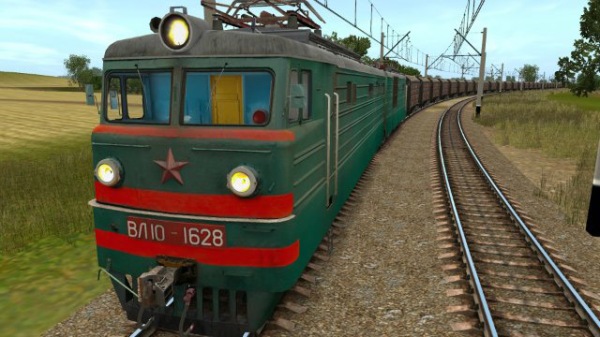“Please, book me a flight. I am not going anywhere by train, I’ve had enough the previous time!”

During my long career in international relations and tourism-related projects I have heard these words thousands of times! Many foreigh visitors to Ukraine and Russia had to deal with local railroad simply because it is the most developed (sometimes the only) way of transportation between cities in this part of the world. Our automobile roads are not as good as the western highways and even those which are available may be out of work during the winder period in some areas; travel by air is still too expensive for the locals, and thus it is still quite undeveloped. Since the first half of the 20-th century people in Russia (and all former Soviet territories) have been traveling by trains, there have been many attempts to romanticize train travel due to the tradition to talk and share the most sincere stories with people who you have just met, but even the most romantic people finally feel bored when they have to ride many hours in a very tiny compartment with a bunch of people they hardly know.

The distances in Russia are really large, so it is hardly possible to avoid an overnight trip if you need to cover, say, 600 miles or more. For example, the train trip from Moscow to Vladivostok takes 7 days. There are modern and faster trains connecting cities in the European part of Russia, but still, most of the long distance trains are the traditional, slow overnight trains.
Here are some interesting facts about traveling by trains in Russia:
- You can travel by one of three classes: luxury car (1-st class), compartment car (so called купе [kupE]), where you will find three other passengers besides you in the compartment, and the 3-dr class (so-called плацкарт [platskArt]), where compartments have no doors, and there are berths on the side along the aisle along the whole car.
- The trains have no special cars or compartments only for women or only for men – you just buy your ticket and wait till the moment you get into your car to see who your fellow passengers are (you are lucky if no one travels with a very little child or with their favorite pets).
- There is a restaurant car in every long-distance train, however, food there will not be delicious, but will be quite overpriced, so traditionally most of the people take their home-made food with them. Be prepared for a rich variety of smells coming from every compartment on the way.

- The berths in compartments have standard length, and if you are very tall, you may be uncomfortable there.
- Many people complain of being unable to sleep because the train moves, and of course you move all the time, too. This shaking may be quite irritating for those who are not used to such kind of travel.
- Some trains are a bit faster than the others because they do not have too many stops. They are called fast trains (скорые поезда) and their numbers are usually from 001 to 120 or so, the bigger numbers usually identify so-called passenger trains (пассажирские поезда), which go slower and may have long stops in really many towns on their way. If you have a choice between a #64 train and a #360, choose the #64. It will get you to your destination sooner.
- In summer time, riding in the train may be quite unbearable because of the heat (air conditionning hardly ever works), while in winter… it is also very hot and stuffy, because the car assistants have a habit to test your limit of bearing the heat. But Russians prefer to suffer from heat rather than to be freezing to their bones, so they rarely complain if it is too warm in the car.

too warm in the train
- The tea in 2-nd class cars may still be served in traditional Russian glasses, but today, more and more often you will see modern glasses or cups rather than traditional ones.
- Sometimes trains may be late to arrive. Passengers are often upset about it, of course, but no one ever tries to sue the railroad, because it is a huge monopolized and the passenger’s chances to win the case are very unrealistic.
- The train assistants (usually women, Russians call them проводница [pravadnItsa]) expect you to tip them when they bring you tea and bisquits, but you will hardly get other services from them, even if you are willing to tip them (they will usually refuse to lay your bed or provide any other services).

Well, there are a lot more little things that can make your Russia train trip unforgettable, but we will wrap it up here. We will gladly publish more information about Russian travel if you are interested. Please, do not hesitate to ask for more information in the comments.

















philstanfield
/ January 31, 2017Hi Rina,
I did the Trans-Siberian from east to west in 1980. I remember the compartment had 4 bunks. At one stop a young mother came in with her baby son, lay down on her bunk and in front of men she didn’t know sharing the compartment, sang her son a lullaby. That would never happen on an Australian train where the closest to this you could hope for would be either everyone using ear pods or a boom box!
LikeLike
Rina Tim
/ January 31, 2017Yes, you are right, these scenes can only happen in a culture like Russian. Well, train experiences are not the only and not the worst ones for our people. In every city and town you can still find apartments when more than one family lives under the same roof in the same apartment, having separate rooms, but sharing the same only bathroom and kitchen. They are called “kommunalka” (commune place, from the word commune), I am going to write an article about them, too. I live in a very good central city multi-apartment building with a number of very well-off people who have their own apartments, and we still have a few apartments in our house with 2 poor families sharing the same flat. Having lived dozens of years in such conditions, people have no problem traveling in 3-rd class trains.
LikeLiked by 1 person
philstanfield
/ January 31, 2017Hi Rina,
My intention is to move from Australia. I remember reading somewhere in Pushkin ‘Sunday, Sunday, I wait for you with impatience’ and for me those words encapsulate the difference between Australian and Russian cultures. Where the Aussie can’t wait for Sunday so he/she can go to the beach or party with friends and family etc., Pushkin (I’m sure I read it in his writing because the beautiful Russian words have stuck in my head) was, like Tolstoi, referring to a ‘resurrection’ or ‘rebirth’ of the spirit – something Aussies can’t understand.
LikeLike
Rina Tim
/ February 1, 2017Well, what you say is true, but only partially, I’m afraid. As Tolstoy, Pushkin and a few other great minds of Russia were the products of Russia’s reality, they did bear the traits of their culture, but o the other hand, these people were absolutely unique. As Russians call them, they are “the conscience of their time”, which does not mean that the mass of ordinary population would display (or at least possess) the same characteristics. What we read in the books of the Russian classics and what we see in the streets of Russia are two absolutely different worlds. I believe that everyone who is excited about a culture should come and spend some time living in that culture (not just visit as a tourist), this would give a person a better realization of the culture from within, and to everyone of us trying to accept a new culture (both, its brilliancy and its failures) helps develop a better look at ourselves.
LikeLiked by 1 person
Dennis Hruby
/ February 11, 2017I like your website and will buy your book. I am exercising my mind by studying the Russian language and the Cyrillic script.
I have three Russian Lady penpals and see an introduction to spoken Russian when we meet online.
Making an association of the spoken and written word to the word’s meaning is the fun and challenging part as well as recognizing the Cyrillic letters and pronouncing them.
LikeLike
Rina Tim
/ February 12, 2017Hello Dennis, thank you for connecting with me! I will gladly assist you with your Russian studies, and if needed, I might be able to answer some of your questions about Russian culture to assist you in communication with Russian people. My FB page about Russian language https://www.facebook.com/RomanticRussianOnline might also be of help sometimes, because there I explain some words, idioms, and Russian humor. I am Russian speaking Ukrainian with partially Polish blood, so I am 100% Slavic and I have this culture in my blood.
If you have difficulties pronouncing Russian sounds and words I can help you with your accent training in a Skype meeting. Many foreigners have similar dificulties with mastering Russian accent, so I provide accent training sessions as a separate service. The first meeting is free, and you may not even need more than one. You are very welcome to write me about your convenient time and we can meet in Skype any day. This might be a good thing to do right before flying to Russia if you are planning a visit.
I will be glad to stay in touch with you. Here is my email address in case if you need to connect: timrinatimrina@gmail.com
Thank you.
Have a wonderful weekend!
Rina.
LikeLike